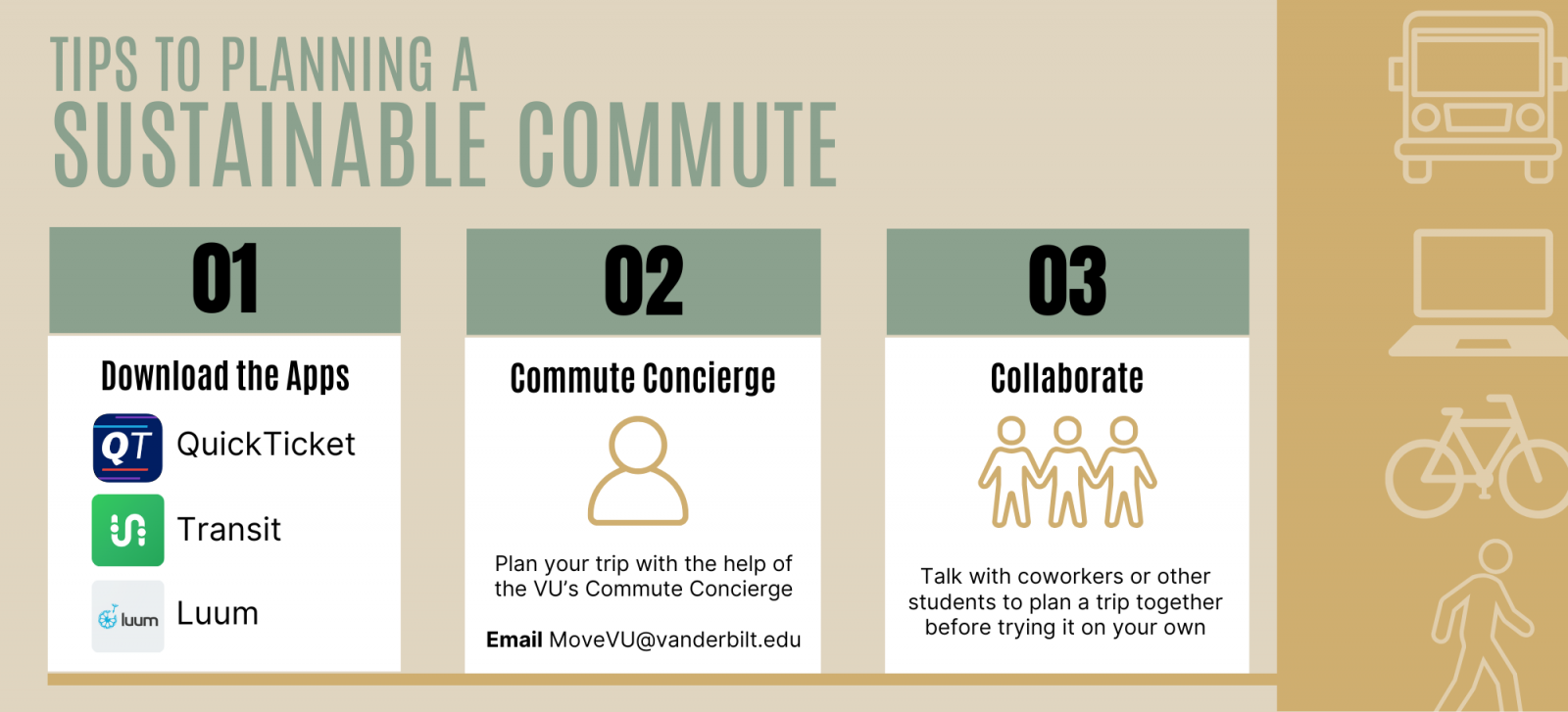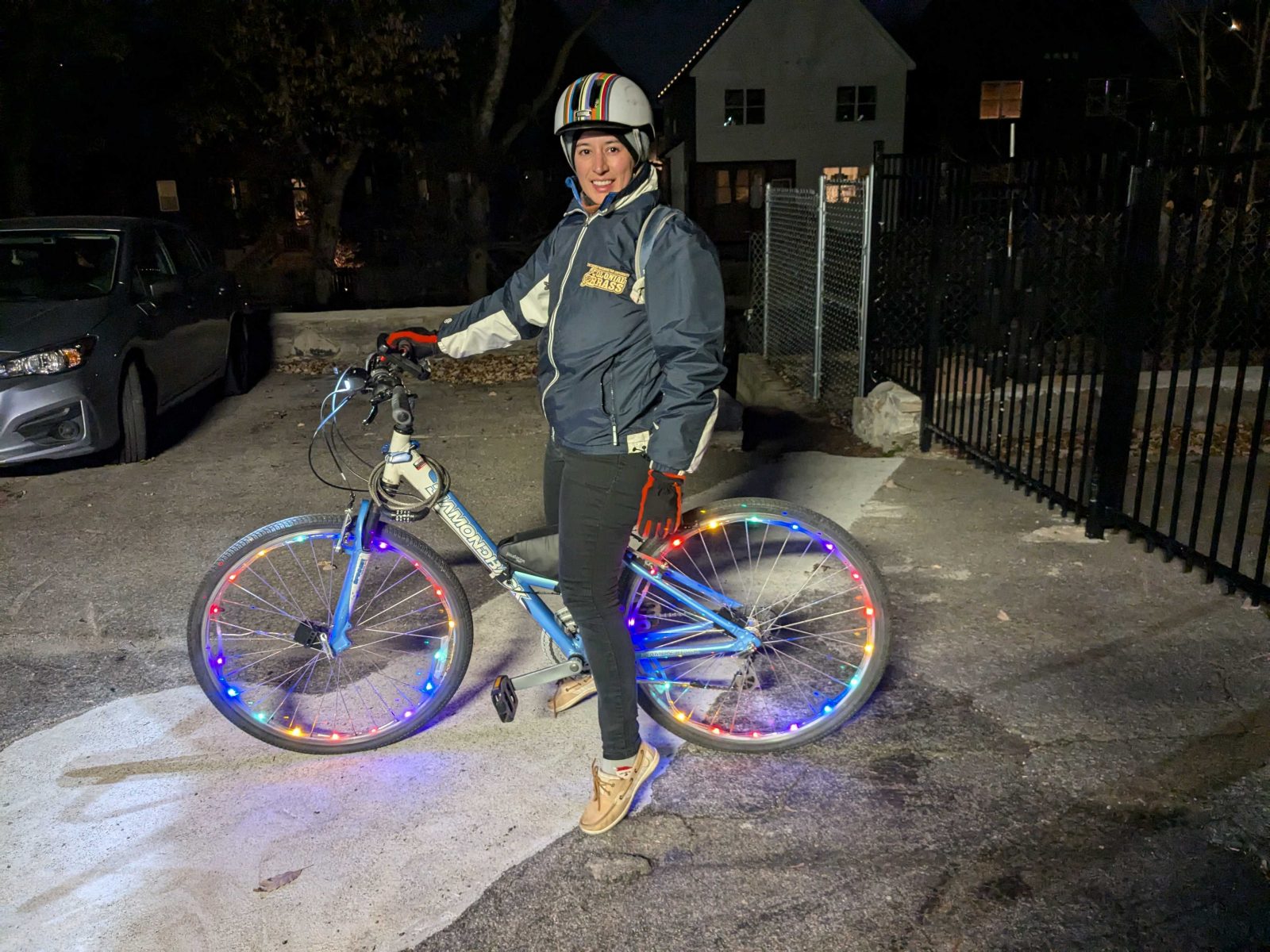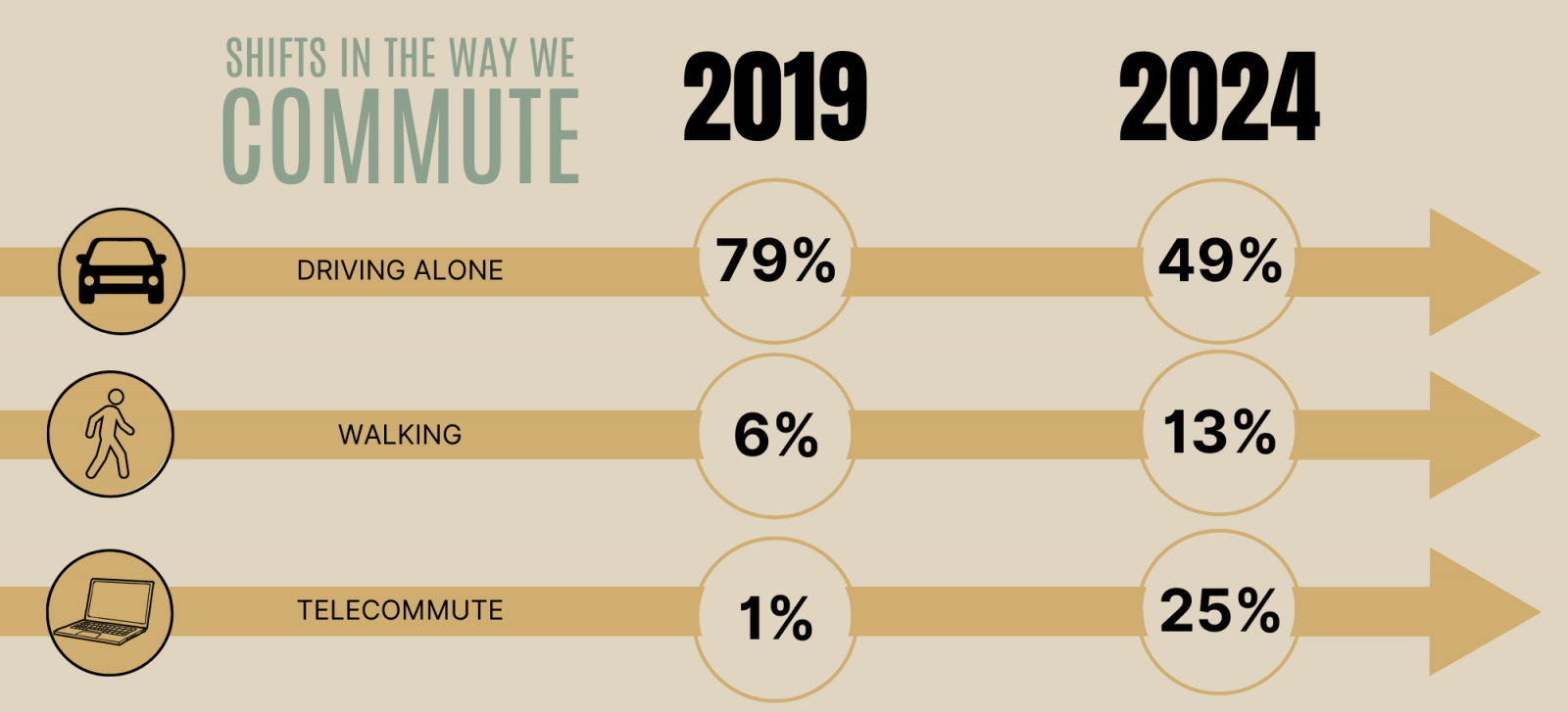In 2019, Vanderbilt University sent its first Commute Survey to staff, faculty, postdocs and graduate and professional students to better understand their commuting habits and patterns. Over five years, the survey has revealed a significant shift to sustainable choices like telecommuting and walking. Due to the COVID-19 pandemic, the survey was not administered in 2020 and 2021. Vanderbilt has released its findings of the 2024 survey on commute and transportation practices.

Years ago, Lorena Infante Lara, senior writer and editor in the School of Medicine Basic Sciences, started sustainably commuting to campus by biking, walking or riding WeGo Public Transit.

“I try to embrace environmental sustainability in as many aspects of my life as possible, so if I can avoid driving a single-occupancy vehicle and just use another vehicle that’s already going in the same direction I am going in, then I’m game. My sustainable commute is convenient and roughly takes the same amount of time as if I drove my car anyway, so why would I drive when I can both exercise for a bit and also play on my phone, read or otherwise disconnect while on the bus?”
Key Findings:
- Overall, 51 percent selected “hybrid” as their work status.
- The percentage of people driving alone to campus decreased from 79 percent in 2019 to 49 percent in 2024.
- 25 percent of respondents telecommute as their primary mode of transportation compared to only 1 percent in 2019.
- The percentage of people walking to campus increased from 6 percent in 2019 to 13 percent in 2024.
- 46 percent of respondents live within 5 miles of campus, and 62 percent live within 10 miles of campus.
View the interactive Tableau site to see the commute survey results from 2019, 2022, 2023 and 2024. View the full 2024 report.
The shift to sustainable commuting practices resulted in an 85 percent decrease in commuting emissions from July 2019 to June 2021 compared with July 2022–June 2024.
Next Steps
The Transportation and Mobility Office will use feedback from the commute survey to shape programs and adjust the marketing of Vanderbilt’s commuter benefits. The data is also provided to Vanderbilt leadership to help them make informed decisions about transportation and mobility efforts.
Guided by MoveVU goals, the office will keep promoting programs that support and sustain more walking and telecommuting while looking for new ways to make public transit and bicycling more appealing and accessible.
What You Can Do
“I don’t like doing things unless I know exactly what I’m doing, so I did some research before I actually started taking the bus and stopped driving in every day,” Infante Lara said. “Ultimately, it can be scary to try a new thing, so at some point you just have to pull the trigger and try it out. Worst case, you go back to driving or do an alternative commute only a couple of times a week. Give it a go and find what works best for you.”

- QuickTicket is the new application Vanderbilt students, faculty and staff must use to ride WeGo Public Transit at no charge.
- The Transit app and Google Maps provide real-time data to nearby public transit such as buses and trains to help plan your route to campus.
- Luum is the mobile MoveVU Commute Hub. Log your walk, bike, carpool/vanpool, bus or train commute in the MoveVU Commute Hub to earn $1 credit on weekdays, find a carpool or check Daily Parking Garage capacities before heading to campus.
- Vanderbilt offers Commute Concierge services; a dedicated staff member will help you find the best sustainable commute for your individual needs. Email MoveVU@vanderbilt.edu to start planning your commute.
Patti Ward, a senior research assistant in the Department of Pharmacology, made the shift to riding WeGo commuter train and bus to commute to campus.
“Using public transportation for the first time can be a little scary and awkward. You don’t know what time to be at the stop or what bus number to catch,” Ward said. “Just talk to the people at the stops or on the train or bus. We will be glad to answer any questions that you might have and be glad to help you get to the correct place. Do not give up on riding the train/bus if you have one bad experience—it might have been a bad traffic day or a road closure that caused a delay.”
Employees’ work arrangements are determined by their department. If employees have questions, they should speak with their school, college or division leadership.
ABOUT MOVEVU
MoveVU is Vanderbilt’s strategic transportation and mobility plan that falls under the FutureVU comprehensive campus planning efforts. It is a highly collaborative partnership between Vanderbilt’s School of Engineering and the Office of Transportation & Mobility in the Facilities Department. The vision of MoveVU calls for a transformation in how the Vanderbilt community commutes to campus, with less reliance on single-occupancy vehicles and parking lots and a greater focus on sustainable commute modes and green spaces.